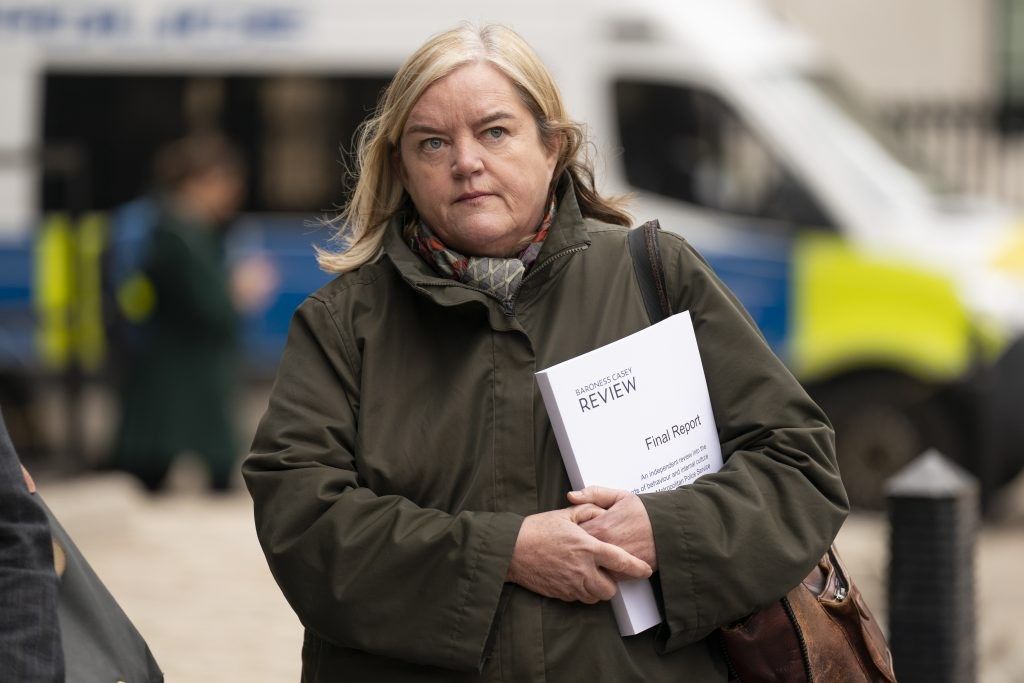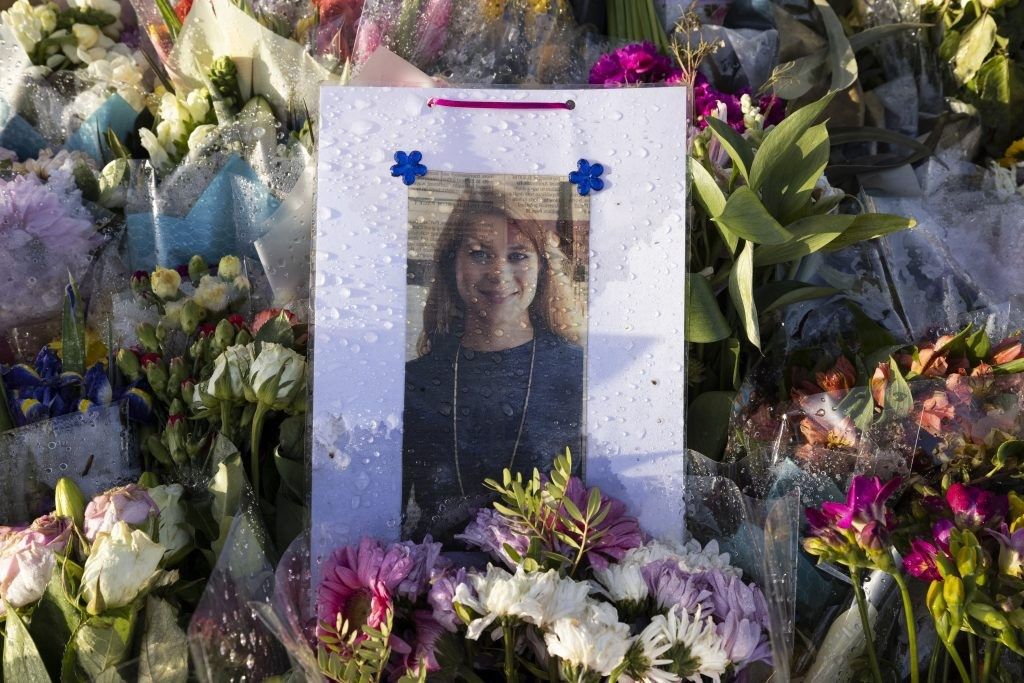TRUST in policing matters – but trust must be earned. One of the most harrowing features of the brutal abduction and murder of Sarah Everard was how it highlighted the tragic dangers when those in positions of trust are allowed to abuse the coercive powers of the state without being detected.Dame Louise Casey declares herself to be fundamentally pro-police, but gathering the evidence has led her to produce an excoriating review of the Met’s toxic internal culture. A fifth of police staff have experienced bullying at work, rising to over a third of women, and of Asian and black officers. Hostile acts of overt prejudice – like Muslim officers finding bacon in their boots and lockers – are the work of a minority, but Casey shows that the dominant, prevailing culture tolerates discrimination by discouraging or penalising those who complain. This is a systemic failure of leadership and management, reflecting a culture of discomfort and denial at every level when it comes to talking about discrimination or recognising disparities.

Public trust has fallen dramatically – but there is no need to leave the police station to find stark differences in perceptions of the Met by ethnicity. Two-thirds of white Met staff think the police treat Londoners fairly, but only a third of Asian (36 per cent) and under a quarter (22 per cent) of black staff agree. Three-quarters of Asian staff and eight in ten who are black recognise that their own minority group is under-represented in the Met ranks. It is striking that fewer than half of white Met staff agree with what is clearly a basic demographic fact about London’s police force.So the internal culture and external face of the Met are intrinsically linked, but change has faltered on both fronts. The Met does now have 5,000 ethnic minority officers (17 per cent) compared to 3,000 (10 per cent) a decade ago. Yet Casey’s analysis finds that progress is more likely to stall than accelerate: current trends of recruitment and retention would see that creep up to just 22 per cent in the three decades to 2055. “Nothing that the Met has done or is currently planning will change this position in the near future,” Casey writes. Yet this glacial pace of change is married to an internal narrative that worries about whether diversity targets have lowered standards by bringing too many minorities in.

The Met must urgently clean up its act, but cannot change this toxic culture from the inside alone. If a Met that looks like the London it serves is unlikely for another generation, shifting the dial on public engagement becomes more urgent. The issue is not the quantity of community engagement, but its quality. The optics of visits to temples and mosques will hit their limits when “the Met sees scrutiny as an intrusion,” as this report says. “Londoners’ voices are missing from how London is policed,” writes Casey.
The review addresses themes – such as stop and search, and institutional racism – that are usually sharply polarising, but the circumstances and content of the review will make it one of those rare moments of consensus, like the Macpherson Report or Windrush, at least briefly. Will that be sustained? Casey’s evidence challenges the instincts of home secretary Suella Braverman, who tends to dismiss talk of unconscious bias or institutional racism as suspiciously woke. If London mayor Sadiq Khan is more sympathetic to Casey’s analysis, the findings on falling public trust since 2016 show the need for significant change to the model of scrutiny and public engagement.

There is rightly a focus on the historic and persistent depth of disconnection between the Met and black Londoners. Ironically, the white/black gap is narrowing a little, primarily as white Londoners are losing faith too. Asian trust is somewhere in between. There is no aggregate disparity in the use of force against British Asians, but trust when reporting hate crime has fallen sharply. This more nuanced story can get crowded out without more rigour to dig beneath the aggregate Asian data – to understand what is happening by gender, geography and generation, within and across different ethnic and faith groups. Akeela Ahmed MBE told a recent British Future and Bright Blue event how difficult it was to get acknowledgement of a poor experience of reporting hate crime, despite being the chair of the cross-government anti-Muslim hatred working group.The fundamental challenge set by Casey is how to sustain change when the headlines move on. Next year marks the 25th anniversary of the Macpherson report. That laid new foundations, but the early energy was lost as arguments about words and labels came to dominate. In this generation, we need clarity from the top about the key indicators of disparity and a sustained commitment, year by year, decade by decade, to track them down to zero across a generation. Inclusive policing by gender, race and sexuality is not a minority issue. Most Londoners are directly affected. If we cannot get this right in London, where else could one hope to do so?
